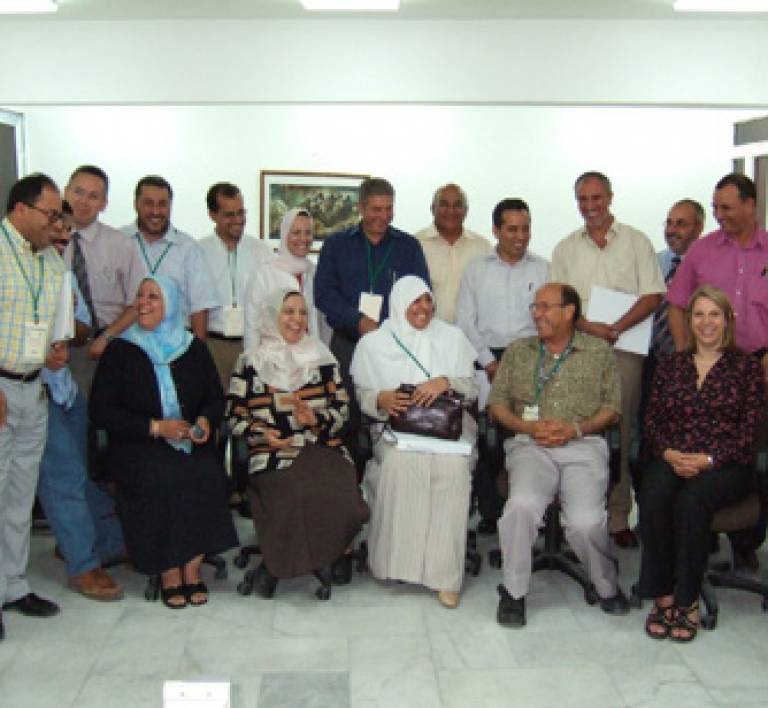UCL academics support Libyan doctors
11 March 2011
Link
 ucl.ac.uk/medicine/" target="_self">UCL Division of Medical Education
ucl.ac.uk/medicine/" target="_self">UCL Division of Medical Education
There has been a lot of interest in the past week in UK universities' involvement in Libya. Although UCL has no institutionally significant links with Libya, a group of academics from UCL's Division of Medical Education have been working on a humanitarian project in the country.
In 2006 the teaching and professional development team at the UCL Division of Medical Education (DoME) were approached by one of their course participants, a Libyan who is involved in medical education in the UK. He felt there was an opportunity to use the skills of UCL medical educators to help improve the standard of undergraduate medical education with the potential to improve patient care in Libya.
Jane Richardson, senior lecturer in medical education, explains: "This project came about through a Libyan doctor working in London who came on our medical teachers' course and approached our department for help. He himself had been in exile for many years and, like many of his fellow doctors who have recently returned to live and work in Libya, believed that the time was ripe for reforms in medical education in Libya."
From these informal beginnings, a group of academics from the UCL Division of Medical Education and the Libyan Board of Medical Specialities, a professional group similar to the UK medical Royal Colleges, drew up a Memorandum of Understanding. Their aim was to provide high quality medical education courses.
Since December 2006 faculty members from DoME have been visiting both Tripoli and the east Libyan city of Benghazi to provide basic teacher training to Libyan doctors and to collaborate with those involved in medical education on the ground to develop local facilitators who would then be in a position to deliver teacher training themselves. Six members of staff from UCL have given up their free time to visit Libya on eight separate trips over the past four years, on a modest honorarium basis.
Dr Deborah Gill, also from DoME, said: "In the spirit of UCL's globalisation agenda and with the potential to use our education expertise to help to improve medical education, which ultimately improves the lives of Libyan people, we were happy to agree to run some courses in Libya and to help to develop their medical educators to ultimately take over this role."
Jane Richardson said: "The training was challenging; we found professionals who worked to a very traditional format, lecture halls of up to 1000 students, delivering didactic teaching for lengthy periods, but were dedicated to improving their skills as teachers. We focused on lesson planning, setting meaningful objectives, using questions and other interactive techniques and how to use contemporary assessments."
Due to the current unrest in Libya the work has been suspended for the immediate future. However, Deborah and Jane are hopeful that the arrangement can be resumed once a stable government is established.
Dr Gill said: "We made some good friends in Libya and were particularly heartened to meet doctors who had been living and working abroad for many years and who had now resettled in Libya with their families, confident of Libya's bright new future. We do hope that they and their families are safe but have not heard from them."
Image: The first set of course participants in December 2006
UCL Context
University College London Medical School's Division of Medical Education (DoME) was established in November 2006. Professor Jane Dacre is the Director of DoME and a board of senior staff supports her. The objectives of DoME are to support the seamless high quality education of medical students from admission to graduation, to enhance the status of learning and teaching within the Medical School and to support and advise on the relevant facilities and resources underpinning medical education.
 Close
Close

